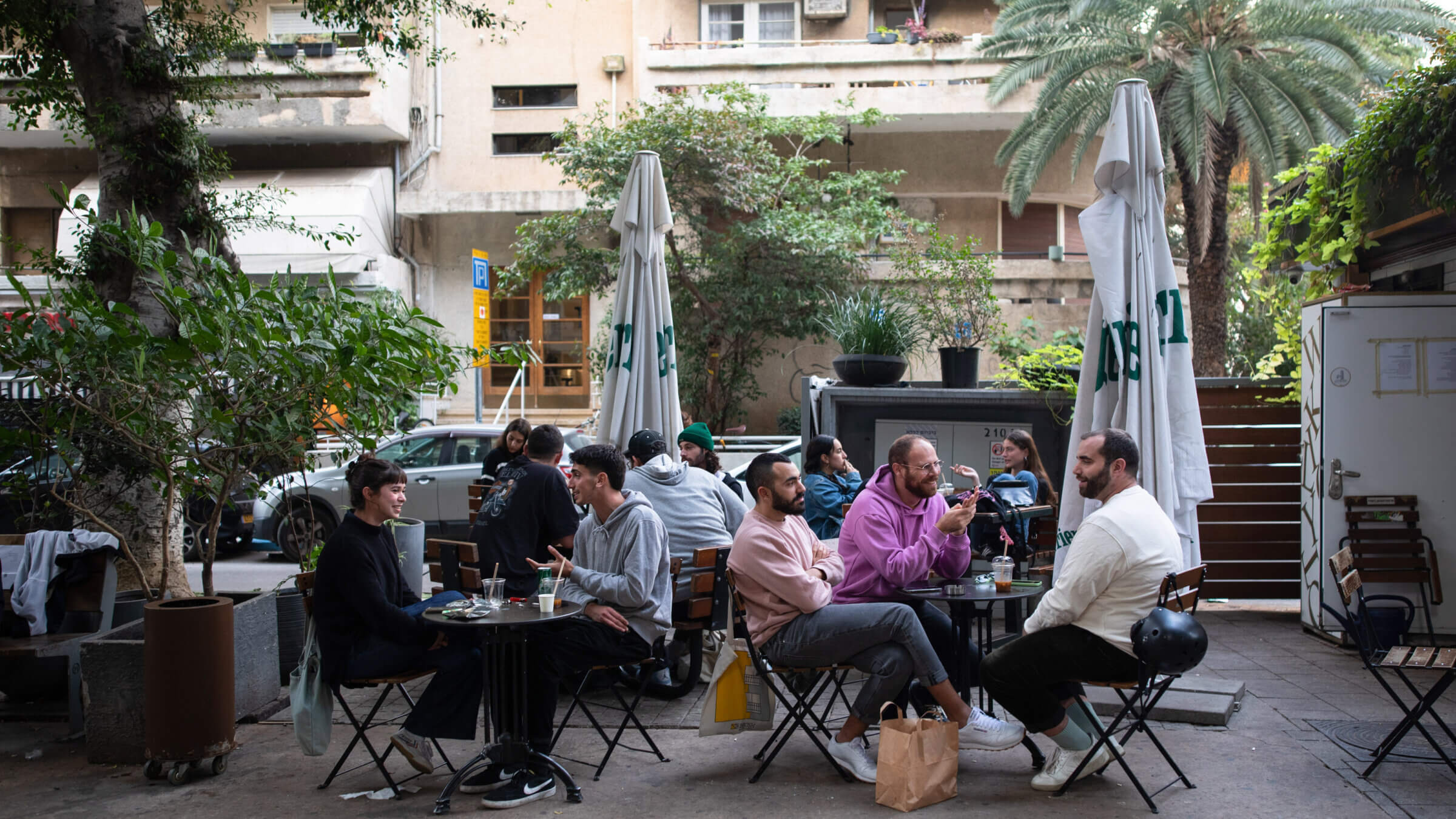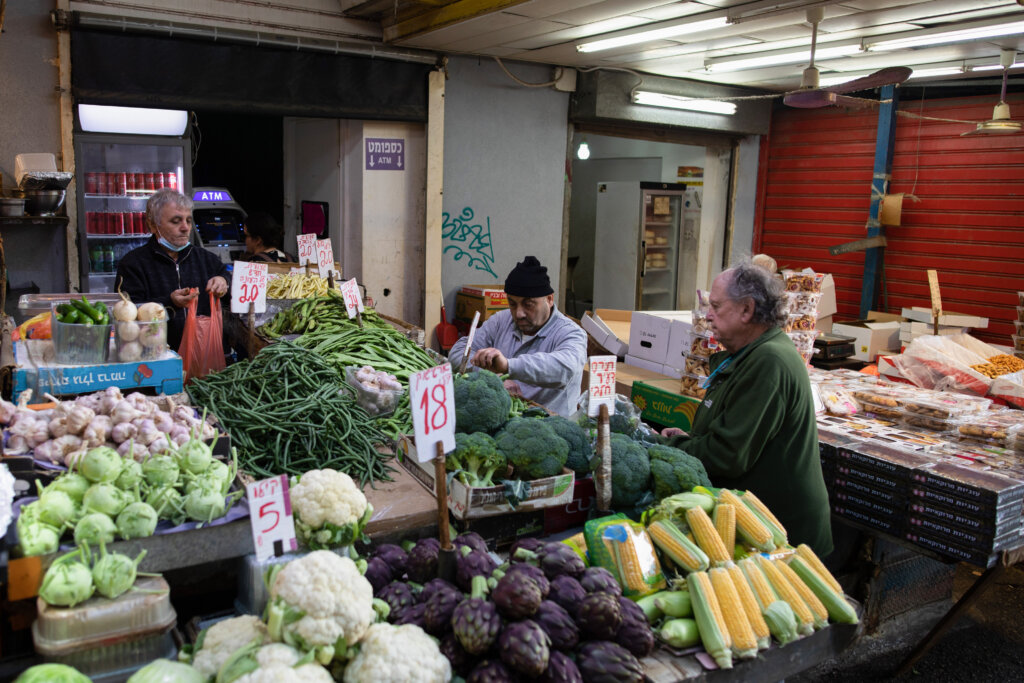The Michelin guide is coming to Israel. What took so long?
The French food guide rejected previous campaigns to cover Tel Aviv

A restaurant in Tel Aviv. Courtesy of Getty Images
Israeli chefs have been dominating the food world recently. Yotam Ottolenghi’s best-selling cookbooks, Plenty and Plenty More, full of Middle-Eastern influenced fare, are ubiquitous. Michael Solomonov’s Israeli Soul and Zahav cookbooks are nearly as hard to escape, and his Philadelphia restaurant won a James Beard Award. Israeli chefs run acclaimed restaurants across Europe and have served as celebrity judges on cooking shows.
But eateries in Israel weren’t eligible for the most sought after of those accolades: the Michelin star. That’s all going to change, according to Israel’s tourism minister Haim Katz, who said in a statement that Michelin will begin evaluating Tel Aviv restaurants. (Katz said Michelin inspectors will not be considering other areas of the country.)
It’s a big win for Israel, which has been campaigning for inclusion in the Michelin guide for years. In 2017, the tourism minister at the time commissioned a study from Michelin, but the guide did not find any restaurants up to snuff.
Plenty of people in the food world consider the tire-manufacturer’s guide to be capricious, and complain that it only caters to the French palate. A Vanity Fair piece pointed out that Italy, a country renowned for its food, had few stars because Michelin did not find the famed national cuisine complex enough.
Still, it seems hard to believe that Israel had no restaurants that piqued inspectors’ interest; Israel may be small, but it punches above its weight in terms of food. And Middle Eastern and Israeli food at restaurants outside of the Middle East have gotten Michelin recognition, including several European restaurants from the same chef as Jerusalem’s Machneyuda. Why not the originals?
The road to Michelin
The Michelin guide started out as a red booklet distributed by, yes, the Michelin tire company. It was a driving guide of France, with places to eat and sleep on your road trip. Somewhere along the line, it became the arbiter of good — or at least snobby — taste.
Until 2006, it only covered Europe. Then, it added New York and began to expand. Now it covers several countries in Asia — Japan is particularly decorated — and in November, it announced an expansion into the United Arab Emirates.
You don’t just need good food to be included, however; you also need money.

Sending guides around the world to eat at hundreds of top-tier restaurants is pretty expensive; to protect the independence of their reviews, inspectors always pay for their own meals and attempt to hide their identities to avoid receiving special treatment. Historically, the guide has lost money.
Though Michelin’s original guides to Europe and even the U.S. were done for free, the guide’s later expansions into cities such as Bangkok, Seoul and Singapore were commissioned, funded by the tourist boards of the cities or countries in question. Tel Aviv’s inclusion will cost $1.6 million, split between the municipality and the national tourist board.
Still, you can’t just buy your way in; Michelin won’t consider every city that asks, even when they’re paying. “You have to have first the right gastronomic landscape,” Claire Dorland Clauzel, the then-executive vice president of Michelin told the Washington Post in 2017. And even when they accept the commission, they aren’t required to give out any stars; they can simply mention eateries.
What, exactly, determines the right gastronomic landscape, however, seems complicated and unavoidably Eurocentric. India, for example, has complex culinary traditions and impressive cooking, yet still doesn’t have a guide. And part of the Michelin assessment is based on the quality of ingredients, which has traditionally valued expensive delicacies like wagyu beef, white truffle or caviar, which local cuisines may not include.
And perhaps inspectors don’t have the right palates to understand Korean or Malaysian cooking. Indeed, Seoul’s Michelin guide was extremely controversial; locals were confused by the picks and ratings. Plus, none of the restaurants listed in newly added cities such as Dubai and Kuala Lumpur have earned Michelin stars, just mentions.
The whole system begins to call the stars’ unassailability — and their worth — into question. Will Tel Aviv’s big investment even win it any stars?
Food-washing the conflict
The Michelin star is still the international symbol of haute cuisine. The rankings bring in destination eaters and food tourism, as well as giving the city or country cultural bragging rights. Food, after all, is a tourist attraction and a nexus of culture, a symbol of a society’s values and creativity.
Israel has long engaged in what critics refer to as “pink-washing” or “rainbow-washing,” emphasizing its massive Tel Aviv gay pride parade as a tourist attraction. This, according to the BDS movement, is a “government propaganda strategy that cynically exploits LGBTQIA+ rights to project a progressive image while concealing Israel’s occupation and apartheid policies oppressing Palestinians.” (Others argue that Israel offers a legitimate draw to LGBTQ tourists.)
A Michelin guide to a city promotes an image of a thriving, luxurious city and country, one that probably has the wealth and extravagance to plate individual herb leaves using tweezers. With a few Michelin stars, Israel can bolster its image as a cosmopolitan destination, and to distract from the violence and unrest that occurs outside of Tel Aviv.
Israel has long massaged its image with PR campaigns, even hiring a firm in the early 2000s to help the country place news stories that were not about religion or Palestinians, instead aiming for an image of a “relevant and modern” country, according to a 2005 Forward article about the PR firms behind the branding push. The more recent nickname of “start-up nation” accomplishes a similar goal; Israel has invested in the high-tech focus with a museum display, tech-focused tours and even a high-tech restaurant.
Of course, whether or not there’s a PR mindset involved, the fact remains that Israel does have a lot of start-ups — and a lot of good food. But they still need Michelin to tell the world about it.
















